In the lead up to the Academic Staff Awards, we will be profiling the amazing achievements of all of the finalists over the coming weeks.
This week, we take a look at the staff from the Faculty of Arts.
Research
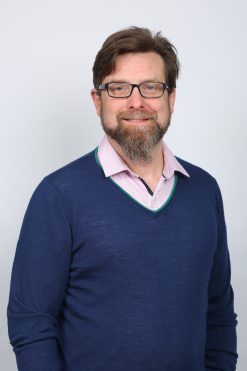 Associate Professor Malcolm Choat
Associate Professor Malcolm Choat
The Jim Piper Award for Excellence in Research Leadership
Over three successive ARC Discovery Projects since 2012, Associate Professor Choat has led teams composed of Early Career Researchers, Higher Degree Researchers (PhD and Master of Research), and undergraduate interns on projects centred on various aspects of authenticity and forgery, from the way ancient scribes copied documents to the sociology of modern forgery and the chemical composition of ink.
“These three ARC-funded projects are part of a wider research arc on the authenticity and ethics of history which I have been pursuing since the start of the decade,” Malcolm says. “My research has pivoted from a focus on the history of Christianity in Egypt and papyrology to a research program which also includes the study of forged manuscripts and testing of their ink, and work on the authenticity and ethics of our relationship with the past.”
In recognition of his status in the discipline and international profile in the fields of papyrology, Coptic studies, and early Christianity and monasticism in Egypt, Malcolm was elected as a Fellow of the Australian Academy of the Humanities in 2018.
“This status within the field has been reflected not only in publications and funding, but in over ten invitations to present at international and Australian venues since 2012, as well as three visiting fellowships in the same period, and an invitation to present the plenary paper on ‘Coptic Documentary Papyri 2012–2016’ at the Twelfth International Congress of Coptic Studies at Claremont Graduate University, California in 2016.
“As well as publications and funding, my new research direction on authenticity, forgery, and ethics has seen a visiting fellowship at the Humanities Research Centre, ANU and four invited papers, including funded invitations to conferences at Kristiansand, Norway in 2016 and 2020.”
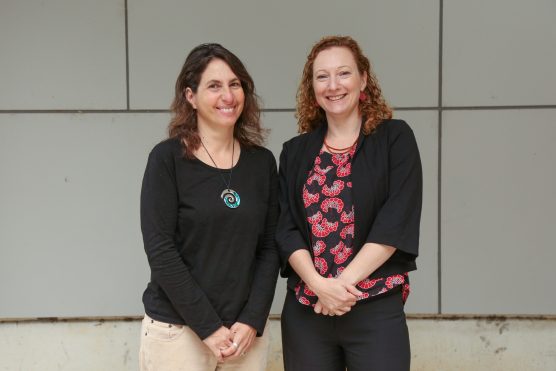 Associate Professor Kate Lloyd and Associate Professor Sandie Suchet-Pearson
Associate Professor Kate Lloyd and Associate Professor Sandie Suchet-Pearson
Excellence in Research: Five Future-shaping Research Priorities
The Bawaka Collective is a 12-year Indigenous/non-Indigenous research collaboration led by Bawaka Country and five Yolŋu knowledge holders from North East Arnhem Land together with three Human Geographers including Macquarie’s Associate Professor Kate Lloyd and Associate Professor Sandie Suchet-Pearson. The long-term collaboration nourishes and, where appropriate, shares Yolŋu knowledge to support Indigenous and non-Indigenous intergenerational and intercultural learnings.
This is done in two ways: through the intercultural sharing of Yolŋu mathematics – a complex matrix of patterns, relationships, shapes and rhythms of time and space that underpin the ways that Yolŋu people relate to their environments – and the intergenerational sharing of songspirals that are sung by Aboriginal people to awaken Country, to make and remake the life-giving connections between people and place.
“Our long-term close research collaboration nourishes and, where appropriate, shares Indigenous and Country-led understandings of Yolŋu knowledge to support Indigenous and non-Indigenous intergenerational and intercultural applied learnings,” Kate says. “Supported by two ARC Discovery grants, an ARC Future Fellowship, a Social Sciences and Humanities Research Council (SSHRC) Connections grant, and a SSHRC Partnership grant, we work on a range of interconnected projects.”
Sandie explains that the Collective makes significant contributions to intercultural sharing and understanding, academic community collaboration and human geography. “This is achieved through the development of outputs sharing Yolŋu knowledge with a range of academic and popular audiences,” she says.
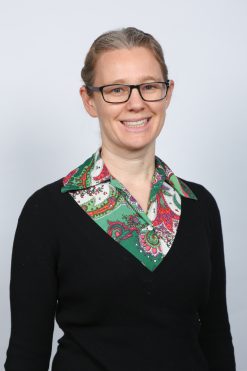 Dr Katrina Hutchison
Dr Katrina Hutchison
Macquarie University Early Career Researcher of the Year (HASS)
Since conferral of her PhD, Dr Hutchison has produced a body of research that draws on feminist philosophy to investigate ethical issues in surgery. She focuses on matters of safety and equity affecting surgeons and patients, including gender biases. The quality and significance of the research is reflected by peer reviewed publications in leading outlets, invitations to speak in local and international forums, success in securing competitive overseas funding, productive relationships with leading international researchers and external stakeholders, uptake into policy and practice, and mainstream media coverage of findings.
“The safety and effectiveness of surgery for patients depends partly on the culture of surgery,” Katrina explains. “Surgery has well-documented cultural problems, including the underrepresentation of women, who comprise only 12 per cent of surgeons in active practice in Australia.
“One strand of my research investigates gender biases affecting women surgeons. Here, my original contribution has been to draw on work in feminist philosophy to illuminate the difficult issue of subtle biases. In order to identify the nature of these biases affecting women surgeons, I have conducted two empirical studies on women’s surgical careers, with my earlier published theoretical research on epistemic injustice and gender bias in women’s careers informing the study design.”
Learning and Teaching
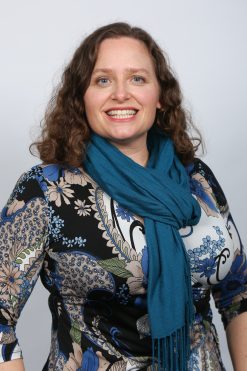 Dr Sonya Willis
Dr Sonya Willis
Vice-Chancellor’s Learning and Teaching Student Nominated Award
The more simply you can explain something, the better students will understand it, says Dr Willis. Having spent many years as a practicing lawyer, Sonya understands the importance of good communication skills, particularly for lawyers.
“Law is a helping profession and good interpersonal skills are essential when advising clients,” she says. “I aim to teach effective communication and interpersonal skills through my own interactions with students as well as by direct teaching. I train them to correspond like lawyers both explicitly and by example; demonstrating the value of politeness, careful wording and thoughtful correspondence. I also care deeply about my students’ wellbeing.”
Sonya is also an editor of the Legal Education Review, which keeps her updated on the latest research into student learning and wellbeing.
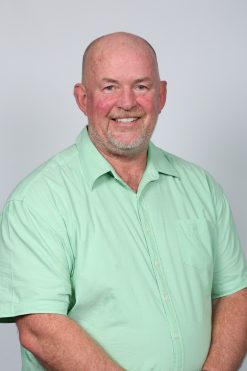 Mr Roderick Smith
Mr Roderick Smith
Vice-Chancellor’s Learning and Teaching Student Nominated Award
Mr Smith explains that his aim is to bring the world into the classroom and for the students, at the completion of their education, to enter that world with vigour, enthusiasm and confidence.
“I draw on my many years in the legal profession to bring to life the theory the students are learning from the texts and lectures,” Roderick says. “Giving learning a practical context, I believe, makes the experience relevant, interesting and real. I am always looking for ways to make a difficult subject easier to understand.”
Roderick says he sees his students as peers from whom he can learn, as much as they can learn from him. “Every day is a new experience for me, and I am immensely pleased when the students question and challenge the ideas that I, or their peers, have presented. I see this as a sign that they are building their knowledge, skills and confidence in a safe learning environment.”
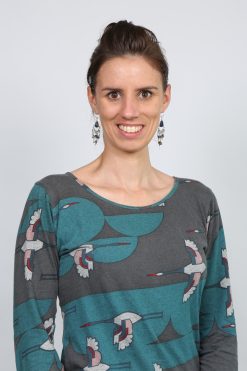 Dr Saartje Tack
Dr Saartje Tack
Vice-Chancellor’s Learning and Teaching Sessional Staff Award
Dr Tack believes that learning can only happen in a safe environment. By encouraging students to engage with each other in the spirit of generosity, we allow room for making mistakes.
“Mistakes are not interpreted as wrong, or as attacks on identities but, instead, open up a space for asking questions and communal learning,” Saartje says.
“I do the majority of my teaching in the Gender Studies program, in both on-campus and online modes, and am passionate about transferring my own enthusiasm for content and for learning and teaching to students in tutorials.
“By deploying a student-as-partner approach, I foster an environment of communal learning in which everyone is always both learner and teacher. I emphasise that I, as their teacher, am equally excited to learn from students.”
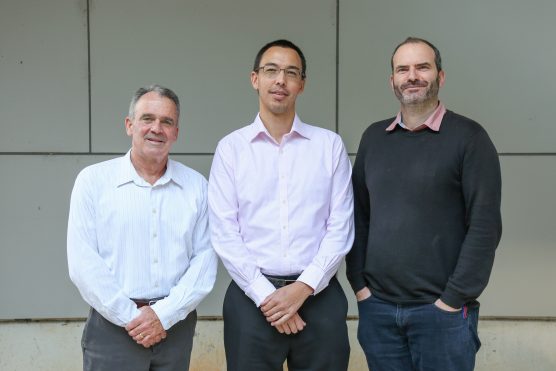 Dr Yves-Heng Lim (with team members: Fred Smith and Dr Adam Lockyer)
Dr Yves-Heng Lim (with team members: Fred Smith and Dr Adam Lockyer)
Vice-Chancellor’s Award for Teaching Excellence
In 2018, the Department of Security Studies and Criminology launched five new postgraduate programs: Master of Security and Strategic Studies; Master of Intelligence; Master of Cyber Security; Master of Counter Terrorism; and Master of Criminology. Dr Lim, Mr Smith and Dr Lockyer developed simulation units that students in each of these programs must complete during their final semester.
The simulation units are co-taught. Students are grouped into interdisciplinary teams where they ‘play the role’ of their specific program of study, such as ‘the criminologist’ or ‘the intelligence officer’. At different stages during the simulation students are either required to work collectively to solve difficult real-world problems or to personally ‘step up’ and apply the unique skills and knowledge they have acquired during the course of their studies. So, for example, the team might be presented with a piece of intelligence which only the intelligence officer (Master of Intelligence student) has been taught how to analyse but deciding what to do with this newly acquired information might require the entire team.
“Our simulation unit is designed as the informal capstone of a connected curriculum and allows students to develop transferable skills while confronting big, real-world challenges,” says Adam.
Yves-Heng adds that, “The simulations challenge students to take responsibility for their individual and collective team decisions. This leads them to take full ownership of their learning in an environment where they are supported by, but also accountable to, their peers.”
“Our scenarios are inspired by real-world events,” Fred says. “This has sparked a very high level of engagement among students who post on average more than ten contributions per week during the simulations.”
Celebrate with your colleagues
Don’t forget to register your attendance for the event today!
The Academic Staff Awards will be held on Monday 18 November from 3pm to 5.30pm in the Graduation Hall (14 Sir Christopher Ondaatje Avenue).

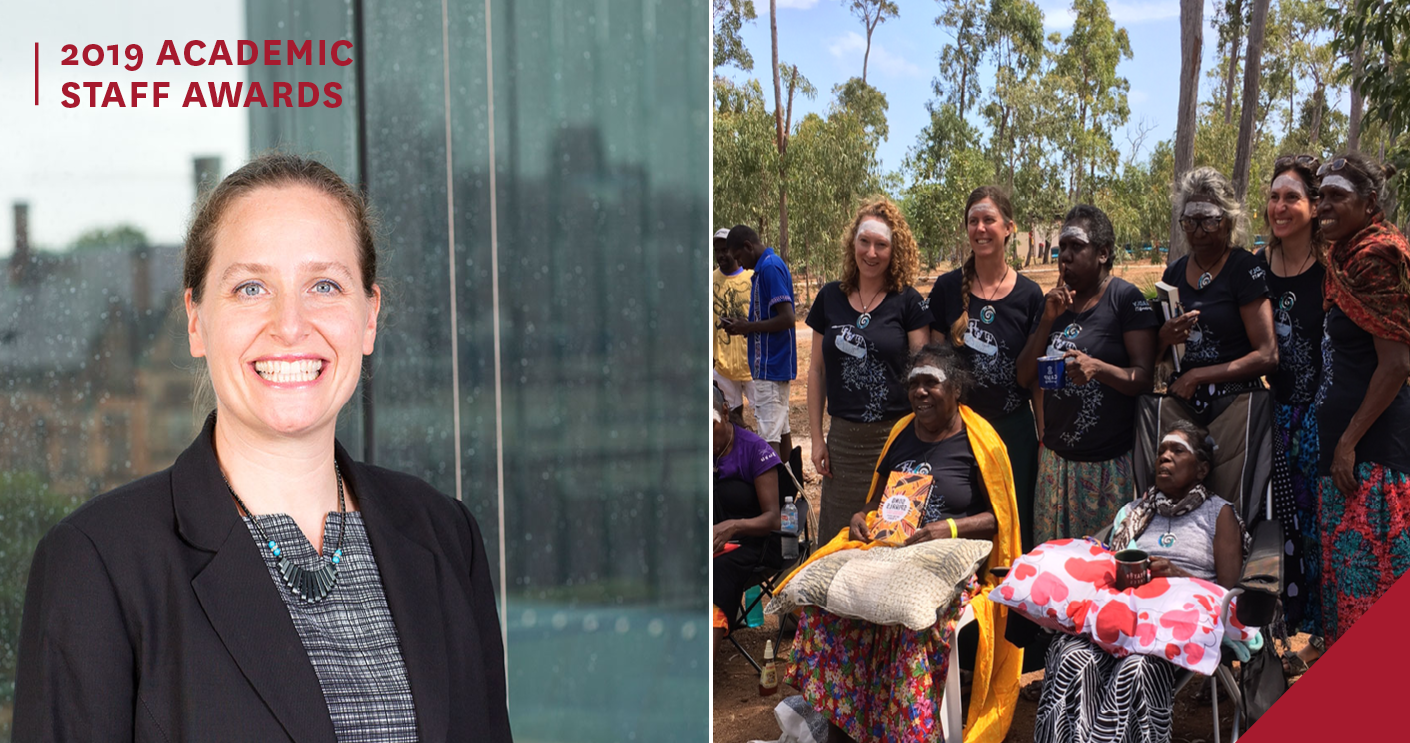
 Back to homepage
Back to homepage
Comments
We encourage active and constructive debate through our comments section, but please remain respectful. Your first and last name will be published alongside your comment.
Comments will not be pre-moderated but any comments deemed to be offensive, obscene, intimidating, discriminatory or defamatory will be removed and further action may be taken where such conduct breaches University policy or standards. Please keep in mind that This Week is a public site and comments should not contain information that is confidential or commercial in confidence.